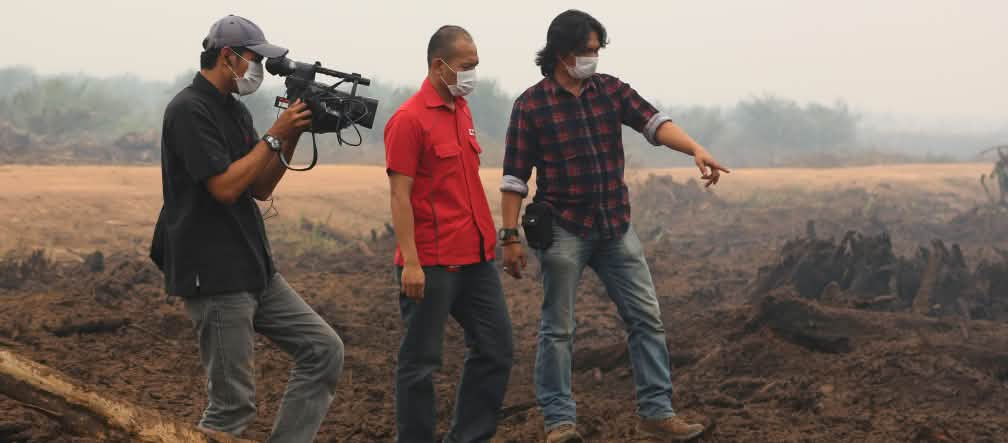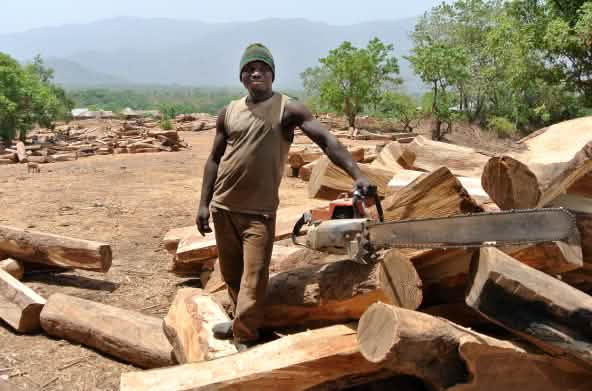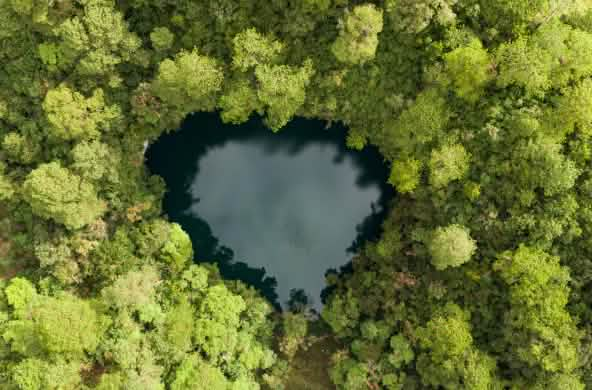
Completed campaign
Forest fires in Indonesia: stop the corporate arsonists!
“The forests have been burning for weeks – our children are dying, people and animals are fleeing the flames and birds are falling from the skies.” According to Nordin of the NGO Save our Borneo, palm oil and paper companies are systematically torching the rainforests. “The government needs to shut them down at once.”
News and updatesTo: the President of the Republic of Indonesia, Joko Widodo; the Minister of Environment and Forestry, Siti Nurbaya Bakar
“Call on the Indonesian government to prosecute the arsonists, permanently revoke their concessions and commit the perpetrators to reforesting the land.”Black smoke is darkening the sky and making breathing painful. The authorities have placed Borneo and Sumatra at highest alert levels.
“On September 15, A 9-year-old girl, Intan, collapsed on her way to school and was pronounced dead on arrival in hospital,” reported Nordin from Central Kalimantan on Borneo. “She died from inhaling soot particles from the fires that have been raging across our country for weeks.” Intan is not the only one who had to die because of arson by plantation companies. Slash and burn is prohibited in Indonesia, yet not even national parks and protected peat forests are safe from it.
“It’s all because of the world’s hunger for palm oil,” said Nordin. “More palm oil for biofuel, more plantations, more and more fires.” The activist spoke of a national disaster that not only threatens the people, animals and rainforests in his homeland, but also the world’s climate. Indonesia is one of the world’s top three carbon emitters.
Fires have also been raging in Jambi on Sumatra. Like Nordin, Rainforest Rescue partner Feri Irawan is risking his life to reach the sources of the fires, identify the perpetrators and bring them to justice. 26 companies are being investigated and a number of executives have been arrested. Among them is the managing director of RKK, a palm oil company that torched 1,000 hectares of peat forest on Sumatra.
“We demand that not only the producers, but all of the companies that use Indonesian palm oil be held liable for the crimes committed in their supply chains,” said Feri Irawan. “They are accessories to these huge fires.” The list includes corporations such as Unilever, Nestlé, Henkel and Neste Oil, a producer of biodiesel for the European market.
Please call on the Indonesian government to prosecute and close down corporate arsonists.
Nordin, founder of the environmental organization Save our Borneo, and numerous others impacted by the fires have written an open letter to President Joko Widodo:
Dear Mr. President,
The forest fires raging here are not the wrath of Allah, but a symbol of greed and evidence of the government’s neglect of the provinces. Would you like to pay us a visit nevertheless?
The airport is closed, Mr. President. Schoolchildren will not be able to welcome you because the schools are closed. Perhaps you would like to take the land route, but that would be dangerous. The thick smoke would be hazardous to your health and that of the First Lady Iriana.
You condone Kalimantan being riddled with mines and carpeted in oil palms and timber plantations. Now we are slowly dying from respiratory problems – we are powerless and ready to capitulate. Perhaps this is indeed the will of Allah Almighty. We would like to thank the people who are praying for us. And we would like to apologize for the haze drifting your way from Kalimantan. It must be quite annoying.
LEVEL OF AIR POLLUTION IN KALIMANTAN: DANGEROUS
According to the media, Kalimantan is no longer habitable. Only 5% of the air is fit to breathe, yet the government does not care about us. Air pollution has peaked today, and nine million inhabitants of Kalimantan will die of lung cancer. The children in particular are in grave danger.
You, however, seem to be more interested in the events in the presidential palace than the fate of Kalimantan. Yet Kalimantan is one of Indonesia’s largest foreign exchange earners.
We not only face catastrophic forest fires and smoke, but also polluted rivers and fields, and our livestock is suffering from the toxic overburden of coal mining. Furthermore, the prices of palm oil and rubber are plummeting.
The governments in Jakarta and the provinces should at least pay a little attention to the crisis and seek solutions. Otherwise, you might as well hand Kalimantan over to Malaysia and Brunei.
Television and the press barely report on the disaster as they are too caught up in their own interests and in the presidential palace. We can only hope for prayers before the inhabitants of Kalimantan die a slow death. Thank you.
Background information
2015 – the year of fires
Indonesia’s forests have been burning between May and November for the past 30 years. 2015 has been an extreme year for fires – possibly even worse than the infamous fire season of 1997. The crisis is being aggravated by the El Nino, an intermittent weather phenomenon marked by particularly dry summer months in Southeast Asia that leaves unprotected vegetation and peat soils especially vulnerable.
The 2015 forest and peat fires are a national and a global disaster. According to satellite data, the bulk of the hotspots are in Sumatra and Borneo. Other forests are also burning, for example in the district of Merauke in Papua, where more than a million hectares of forest have been cleared for plantations in the past four years.
Polluters, arsonists and criminals: the palm oil and paper industries
Based on satellite data and statements from local NGOs, most of the fires are set deliberately to clear forest land for plantations. Depending on the location and source, the palm oil and paper industries are responsible for 60 to 80% of the fires.
The government and industry often blame the forest fires on smallholders and forest dwellers using slash-and-burn methods to clear small plots. The fact that fires never break out in regions with intact primary forests speaks against this argument, however. Satellite data indicating concentrations of hotspots in the vicinity of oil palm and acacia plantations is evidence of the involvement of the plantation industry. The data contains the initials of more than 100 companies, but does not reveal their complete names. The Minister of Environment and Forestry, Siti Nurbaya Bakar, has promised to take legal action against the companies.
Correlating the initials and other data indicates that Sinar Mas is the company with the greatest number of hotspots. Sinar Mas is the parent group of Asia Pulp & Paper (APP), Golden Agri Resources (GAR) und SMART.
Is the government taking action?
The government stands accused of serious failures in this issue. Despite years of promises to do something against the devastating forest fires, nothing has changed. Forests are only seen as potentially productive land and an increasing number of concessions are being awarded to the palm oil and paper industries.
As of September 2015, the Indonesian Ministry of Environment and Forestry was monitoring 39 major fires, of which 24 had broken out within the concession areas of plantation companies. According to the minister, 22 firefighting operations involving 17 helicopters were in progress as of late September. Four aircraft were also being deployed to seed clouds and induce rain. Volunteers, police and the military are in action on the ground. Firefighting efforts remain inadequate, however, as the plantations themselves are not equipped accordingly.
President Jokowi, government ministers and senior officials have repeatedly said that they would take action against the plantation companies. The police is currently investigating at least ten Sumatran companies and twelve from Kalimantan.
Even the most efficient firefighting will not solve the problem, however. The destruction of rainforest by the slash-and-burn practices of the expanding palm oil and paper industries remains the central issue. NGOs are therefore calling for the immediate and permanent withdrawal of concessions for corporate arsonists. A ban on further expansion must be put in place to protect the remaining forest.
A consequence of the forest fires: high carbon emissions
The emissions of greenhouse gases and their impact on climate change are a global issue. Forest fires – especially in peat forests – and deforestation produce 15 percent of global carbon emissions in “normal” years; in 1997, a year of massive forest fires, they accounted for up to 30 percent.
According to Indonesian law, primary forests, peat swamp forests and peat soils may not be converted to plantations. A moratorium on the conversion of defined primary and peat forests was put in place three years ago despite resistance from the agricultural and timber industries.
According to the Ministry of Environment and Forestry, more than half a million hectares of oil palm plantations in Central Kalimantan are illegal.
The global impact of peat fires
Indonesia has (had) vast peat swamp forests. Peat soils in Sumatra and Kalimantan are several meters deep. The soils, which store large amounts of carbon, are wetlands that do not burn under normal circumstances. Once the land has been cleared and drainage ditches have been dug, it ignites quite easily, however. Burning peat not only emits carbon dioxide, but also vast quantities of particulate matter – a serious health hazard. Burning peat soils account for the bulk of Indonesia’s carbon emissions.
Forest fires and haze: crime and human rights violations
The Indonesian National Commission on Human Rights (Komnas HAM) called the forest fires and haze a human rights abuse by the government, as it does nothing to stop the forest fires and the attendant health hazards from recurring every year. People are being deprived of their right to a clean and healthy environment.
The Indonesian Forum for the Environment WALHI considers the forest fires to be a serious crime on the same level as corruption, banking crimes, terrorism, human rights abuses and human trafficking.
Loss of forest
Just how much forest has been destroyed cannot be clearly determined at this time. On September 18, 2015, the government published extensive data on the fires and the haze disaster. According to the report, nearly 200,000 hectares of forest, peat soils and other areas had been burnt as of September 9, 2015.
Pollution does not stop at borders
Since the terrible forest fires of 1997, the ASEAN countries have been discussing the transboundary haze arising from the forest and peat fires, an issue that impacts Singapore and Malaysia above all.
In 2003, Indonesia signed the Asean Agreement on Transboundary Pollution. One of the objectives of this “haze agreement” was to develop a map to locate the hotspots and indicate who manages the relevant land. However, Indonesia has so far consistently refused to identify the owners – in most cases, plantation companies. When criticized, Indonesia responds that half of the plantations belong to Malaysian and Singaporean companies, and that they should finally stop with the practice of slash and burn.
Death and disease
Visibility in the affected areas is at times down to a mere 10 meters, and the yellow haze is full of black particles that penetrate deep into the lungs. The number of people currently suffering respiratory problems in Sumatra’s Riau province is twice as high as last year. Young children or people with respiratory diseases are particularly vulnerable to prolonged exposure to particulate matter; some children have already died of smoke inhalation.
A video by our partner organization Save Our Borneo:
Air pollution
The Pollution Standard Index (PSI) – the concentration of airborne particulate matter – exceeded 2,000 micrograms per cubic meter (μg/m3) of air in Palangkaraya on the 23rd of September. To put that into perspective, the EU threshold for particulate matter is 50 μg/m3, while the WHO considers the maximum safe level to be 100 μg/m3.
Information and links
Reporting by the western media on Indonesia’s fire and haze disaster has been minimal at best.
On September 11, 2015, the British government issued a travel warning for Riau islands, Sumatra and Kalimantan due to poor air quality.
Forecasts for 2015
http://www.nat-hazards-earth-syst-sci.net/15/429/2015/nhess-15-429-2015.pdf
Satellite imagery
https://www.facebook.com/CRISP.NUS?fref=photo
Satellite data of Jambi
http://www.eyesontheforest.or.id/?page=news&action=view&id=823
Fire in Riau
Video of Riau
Deutsche Welle photo gallery (in Indonesian)
http://www.dw.com/id/hutan-sumatera-dan-kalimantan-membara/g-18712886
To: the President of the Republic of Indonesia, Joko Widodo; the Minister of Environment and Forestry, Siti Nurbaya Bakar
Dear Mr. President, dear Minister Bakar,
Once again, a young girl in Sampit, Central Kalimantan has died as a result of devastating forest fires. The nine-year-old died of smoke inhalation on her way to school.
Little Intan is not the only victim of this national disaster. Several people have died in Indonesia and countless others are suffering. The Pollution Standard Index (PSI) for locations in Kalimantan and Sumatra has reached incomprehensible levels – up to 2,000 micrograms per cubic meter of air in Palangkaraya on the 23rd of September. That is 20 times higher than the safe threshold of the World Health Organization.
Even though slash-and-burn is strictly prohibited in Indonesia, fires are deliberately set in rainforests and peat forests every year by palm oil and paper companies aiming to expand their plantations. Not even the national parks are safe from the arsonists. In Berbak National Park in Jambi, the company PT. Pesona Belantara Persada set fire to one of the last peat forests in Sumatra. Fires are also raging in Tanjung Puting National Park. The protected rainforest in the southwest of Borneo is home to the last orangutans and proboscis monkeys. The BGA Group was responsible for setting those fires.
You have repeatedly promised that you would put an end to the forest fires and that you would fight fires vigorously and hold the arsonists accountable. Yet more fires are raging in forests in Sumatra and Kalimantan this year than ever before. More than three dozen companies are suspected of having destroyed thousands of hectares of rainforest. On September 23, the managing director of RKK, a palm oil company, was arrested in connection with a fire that destroyed 1,000 hectares of peat forest on Sumatra.
Please keep your promises and prosecute all of the perpetrators. Revoke the concessions of the responsible companies permanently and ensure that no new concessions are granted. Commit the arsonists to reforesting the land they burned.
Please also reconsider your economic policies, especially with regard to subsidies for biofuels. Further rainforest land is being cleared for the required oil palm plantations, driving climate change.
Please establish a transparency law to ensure that not only the producers, but all of the companies that use Indonesian palm oil and paper can be held liable for the crimes committed in their supply chains.
Mr. President, Minister Bakar, we have had enough empty promises regarding climate protection. Please protect the rainforests for the benefit of the people, animals and plants that live in them.
Kind regards,
August 2023: We are ending this petition, even though it was not successful, and its demands remain valid and relevant.
The petition was delivered in November 2015 and early 2016 in Jakarta and in Palangkaraya, capital of Central Kalimantan province, Borneo. Of more than 100 companies suspected by the Ministry of Forestry of setting fires or failing to take fire safety measures, only a handful are convicted. In Jambi province, those companies were RKK and AGBA.
The 2019 forest fires, almost as devastating as those of 2015, underscore the continued relevance of the petition. Between 2015 and 2019, 4.4 million hectares of forest, plantations and land immediately surrounding plantations burned. To date, twelve large corporations – suppliers to international food, cosmetics and oil producers – are considered the main perpetrators. Except for a few employees of two companies, the corporations have not been brought to justice to this day.
Some measures taken by the government of Indonesia have been more successful than its efforts to prevent forest fires. Deforestation rates are lower than 2015-2019, but still too high. Hundreds of companies have been audited and some have had their permits revoked because of missing documents or illegal activities.
Perpetrators are also likely to remain unprosecuted in the future: The so-called Omnibus Law (Job Creation Law) of 2020 – which was drafted with the active involvement of the palm oil (GAPKI), timber (APHI) and paper (APKI) company associations – weakens environmental and human rights standards.
The year 2015 went down in Indonesia’s history as the scene of one of the worst environmental disasters of the 21st century. Yet every year since has seen fires on and near the concessions of palm oil, paper and timber companies.
Our demands are therefore just as relevant in 2023 just as they were in 2015 and 2019:
- All perpetrators must be held accountable.
- The concessions of the companies concerned must be revoked and they must be required to reforest.
- No new oil palm plantations.
- Indonesia must create a transparency law and make the data on concessions and plantations public.
- All corporations that process Indonesian palm oil and paper into consumer goods and biofuel must be held liable for environmental crimes along their entire supply chain.

